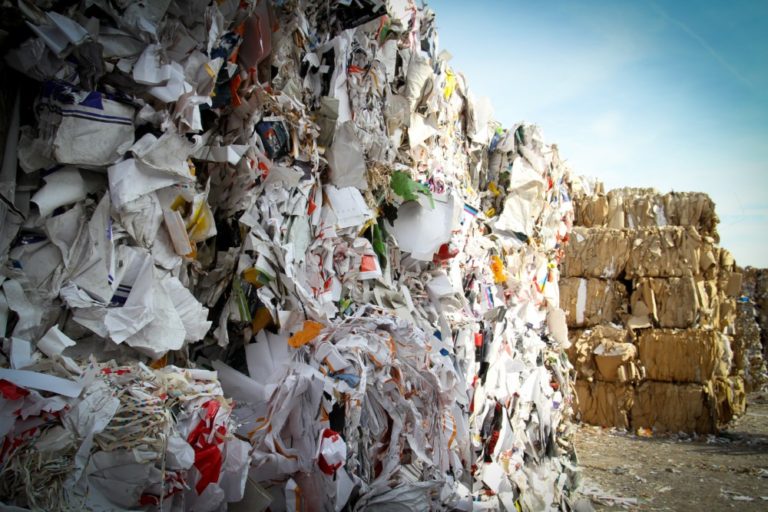Greenwashing and Recyclability Claims to Watch Out For
In recent years, there’s been an increased effort from both individuals and businesses to be more environmentally responsible. A big part of the effort is using products that have recycled content, are recyclable or have recyclable packaging. The goal is to dispose of the items properly when they come to the end of their life – ideally into the recycling stream.
Unfortunately, there is confusion in the way that companies market products that have recycled content from those that are recyclable. This can cause confusion among consumers and lead to these products not being managed in the right way at their end of life.
Recycled Content Definition
One of the biggest points of confusion when it comes to marketing recyclable products is the difference between the terms ‘contains recycled content’ and ‘recyclable’. If something contains recycled material, that means it is made out of material that has been recycled from previously used materials.
There are two types of recycled material that are used to make new products. The first type is post-consumer recycled material. These products are made from the items that have been used as a product but then go into recycling collection streams in the community. The collected items are sorted based on material (e.g. PET #1 pop bottles), and then reprocessed into the original material type (e.g. plastic pellets) to be used in manufacturing products.
There are also products made from post-industrial recycled materials. These are items made with waste from the original manufacturing process. Scraps are collected during the initial manufacturing stage and then recycled to minimize the waste. Both post-industrial and post-consumer recycled materials have reduce waste and the energy used in making product from virgin or unrecycled material.


Recyclable Definition
Recyclable means the material the item is made from can be recycled into another product or use. Common recyclable items are made from paper, metal, and some plastic. Many products are not worth recycling either because their recycling rate is too low or because the product is too complicated to easily recycled (e.g. there are too many materials, or it’s hard to get apart). For some materials the technology to recycle such material does not exist or is not readily available.
Recyclable items must be clearly labeled so they can be easily sorted. They should also have specific information about the materials used in the product, so that the item can be properly processed.
If a recyclable item does not reach the appropriate processing facilities to be recycled it’ll be destined for the landfill regardless of its potential to be recycled.
What is Greenwashing?
With the current public discourse about climate change becoming increasingly relevant, many consumers are actively seeking out environmentally friendly products in their daily lives and looking for ways to reduce their environmental footprint.
However, the consumer’s desire to seek out more responsible products has increased the trend of greenwashing. Greenwashing happens when companies market themselves or their products as being environmentally friendly, but do very little to actually implement sustainable practices.
This has been happening for decades, and although advertising regulations have become stricter since this trend first began, it still happens. For example, many companies will label their products as ‘recyclable’, ‘compostable’, or ‘biodegradable’, but the product needs to be in very specific conditions in order to fully decompose or be recycled. This ‘mistruths’ have led to the development of guidelines for environmental marketing claims in many jurisdictions.
Marketing Regulations for Green Products
Governing bodies in the United States and other countries have released guidelines for brands using environmental claims in their marketing campaigns. These guidelines aim to properly inform consumers about a product’s origin and potential for recyclability and composability.
Marketers can no longer make broad, unsubstantiated claims about their products like just saying ‘green’ or ‘environmentally friendly’. They now need to back up those claims with specific attributes and research. They also must weigh the environmental trade-offs of using recycled or compostable materials. Just because a product is made from recyclable materials doesn’t necessarily mean it is environmentally friendly. There are many instances where making a product from recycled materials has other negative environmental impacts. For example, many products made from recycled materials require more water consumption and result in higher levels of greenhouse gas emissions. Companies can no longer use ‘made from recycled materials’ as a selling point if this is the case.
There are also now definitions for the various agreed-upon terms that marketers use to promote environmentally friendly products. If the products do not fit these definitions, the terms cannot be used as part of their marketing campaigns.
For example, for a product to be marketed as recyclable, recycling facilities must be readily available to at least 60 percent of the areas where the product is sold. If this isn’t the case, the term ‘recyclable’ must be qualified with a disclaimer, usually something to the effect of, “This item may not be recyclable in your area.” For products made from recycled material, marketers need to correctly identify the percentage of the item made from recycled material and provide any other qualifying information about the product.
These strict definitions are key to helping consumers make informed choices while shopping. Companies that do not follow these definitions can also encounter legal problems later on—for example, Walmart settled a case in 2017 for misrepresenting its plastic products to consumers.

Recyclability Claims and the Promotional Products Industry
In the promotional products industry, most distributors rely on suppliers and manufacturers for product information and claims. However, many suppliers are unaware of the FTC or other guidelines on environmental marketing claims. As such, the risk is there that the product information, hang tags or packaging are making false claims. Working with a promotional product partner who can help navigate environmental claims and ensure you’re onside with the FTC Guidelines has never been more important.
How can consumers make informed choices?
In order to make smart choices about the products you purchase, it’s important to go beyond broad claims of sustainability and read the fine print. If you want to recycle a product, make sure you have appropriate recycling facilities near you. If you’re getting promotional products for an event or product launch, check out the recycling programs in the region.
Fairware can help ensure you’re making informed decisions about your sustainable promotional merchandise. Contact us today.
